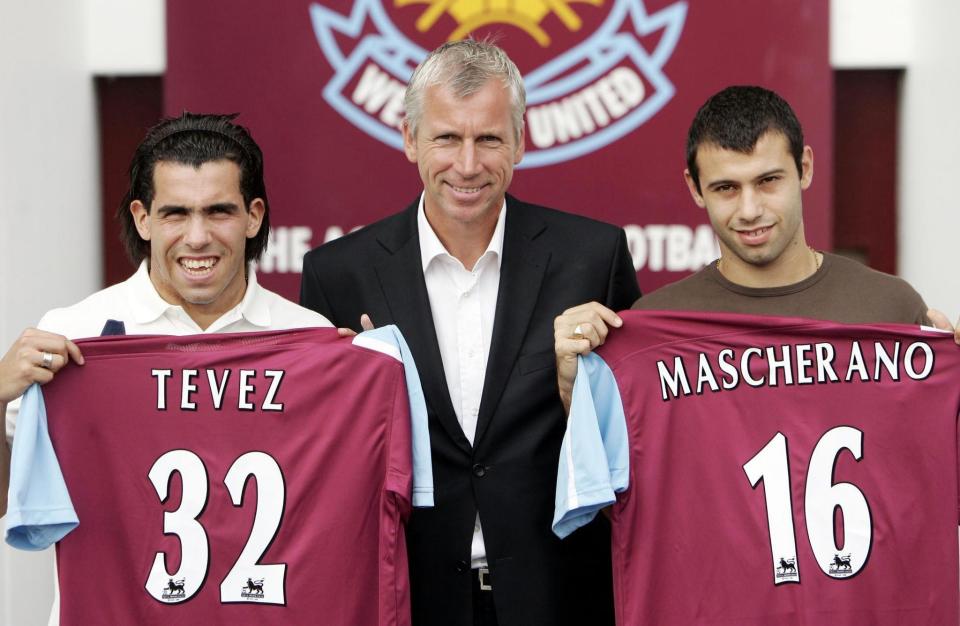Football agent reveals the truth behind transfer deadline day
Transfer deadline day can make or break a football club’s season.
Three months worth of speculation reaches a hyperbolic climax, with British clubs rushing to make last-minute additions to their squads.
For Premier League and Championship teams, the cut-off point is 5pm sharp on Thursday.
Fans generally opt to spend the day glued to social media or Sky Sports News, gorging on speculation and rumours.
And although it seems like a mad scramble, sports agent Nick Robinson explains that deadline day deals are usually the result of prolonged negotiations.
The time required for clubs to negotiate and for the player to go through the necessary medical means it is virtually impossible to conclude a deal in a day.
Robinson, founder and managing director of sports management agency International Sports Consulting, said: “Most of the time these deals... you would already be in discussions with the clubs for weeks before that.
“It will be extremely rare that I would get called by, or call, a club on deadline day about a player and say ‘right, we’ve got a player at this club, do you want to sign him?’
“Say if I did that at 10 o’clock in the morning on deadline day, it would be really rare to get a deal done that day.
“More likely, three weeks prior or months or even six months prior, we’re talking to the club that are interested, we’ve some rough idea of numbers and how it fits into their play, they’ve gone to see him live several times, and he’d be one of three or four options for that position.”
Although it is not impossible that deals commence and finish on the same day, he does add the success rate of a deal that begins so late is probably less than 2%.
“Occasionally, and it tends to be a little lower down the chain, so to speak, you might just get a completely random call on deadline day,” he mentioned.
“But most of the time you would have seven or eight irons in the fire just ready. And it would just be a case of a couple of those coming off, because circumstances that you’re not in control of have happened in a certain way.”
Wasting hours on a crucial day and the risk of being left embarrassed by a player’s rejection are just two of the reasons why last-minute dealing is seen as ‘poor business practice’.
So, with that in mind, the 37-year-old walks us through a chaotic deadline day of his own.
Having reached midday ahead of an 11pm deadline, his day began to accelerate.
Deals for two players were given the go ahead by the two respective UK-based clubs - but both players were in France, at extreme ends of the country.

He couldn’t physically be at two separate locations, which left him requiring help from a lawyer in order to complete the second deal.
He added: “We needed to get everything agreed between the clubs, got in touch with the club and said ‘look, this is the final offer. This is where it’s at. What you’re asking for, that’s fine.’
“There was a bit of discussion around payment terms. In one of them, they said ‘well we want this payment paid within two years’. The UK club wanted it paid in four. That was a little more to negotiate on that one. The other one, it was all agreed.
“Then it was a case of getting the players into the country.”
After organising flights for the duo, as well as drivers awaiting their arrivals, Robinson had his players arrive at their respective locations at 5.30pm.
Five-and-a-half hours to complete two deals. Simple enough, right?
Well, at least it sounds that way before the intense player welfare scrutiny.
“The clubs will talk about all the medical information, club doctors will then be asked to hand over those details.
“In both those cases, there was translation required. Then looking at previous injury records and all the rest. The next part is a big, big medical.”
The medical, which he says can last several days otherwise, is condensed into a four-hour procedure with the deadline looming.
Experts in that field - requested by the clubs - are then asked to examine the MRI scans and subsequent evidence in front of them.
All the while, club physios will be doing tests with the player and trying to identify any further complications.
“With one, we still weren’t sure if the UK club would pass his medical. If they deemed his injury to have progressed to a certain stage, enough of a stage where this was not a long-term risk of a signing. That was the one I went to, to manage that situation.
“The great irony was the medical was in a hospital which was in the middle of the countryside, in the middle of the woods. Of all the places there was no mobile reception, I had to keep driving out about five minutes just to pick up any messages about how the other deal was going.”
At one end, while the medical procedures are ongoing, agents and lawyers involved are looking at the paperwork and ensuring everything is perfect for the deal to go through.
So, while most are glued to the yellow and black news tickers, what came next?
“A small waiting game to see if the medical has been passed, and then I’m calling back the lawyer to make sure everything’s done at his end.
“The contracts were signed (at about 10pm), the photos done, and we drove home. Everyone is happy.”

So a process which can take days, weeks or even months was compressed into an 11-hour period.
Herein lies the key to the bi-annual deadline day madness; the chaos of transfers happening outside of a club’s control, which subsequently impacts them.
He cites an example from West Bromwich Albion a couple of years ago, in which Angers centre-back Romain Thomas was on the brink of a move to England.
The Ligue 1 player was all set for a big move, only for the selling club to cause the deal to collapse.
He revealed: “The manager just spoke with the owner and said ‘look, I’ve already sold one of my best players, if you’re selling the centre-back, I cannot guarantee we don’t get relegated.
“‘He’s such a key part, and actually if he goes, I’ll probably go too.’ The owner got spooked, changed his mind, the deal didn’t happen. That was on deadline day.”
No doubt, the collapse of that deal brought about an end to other moves, which had been in the works for some time.
So what does 2019’s deadline have in store?


